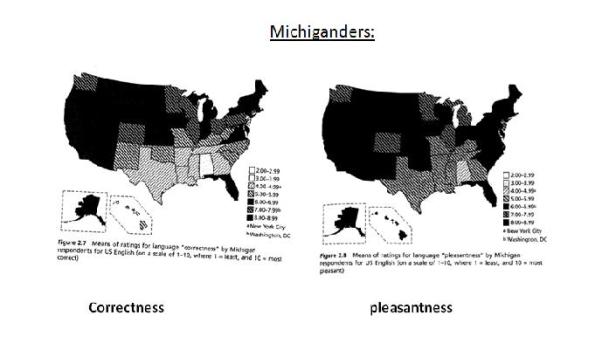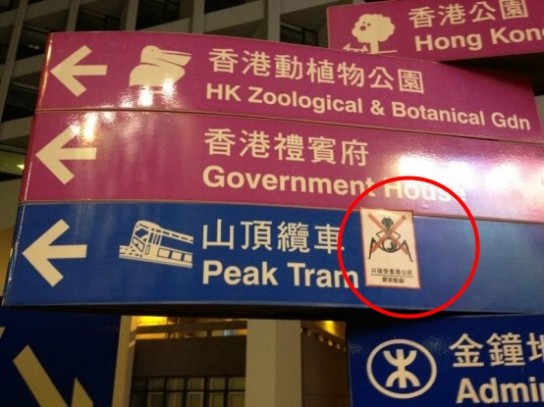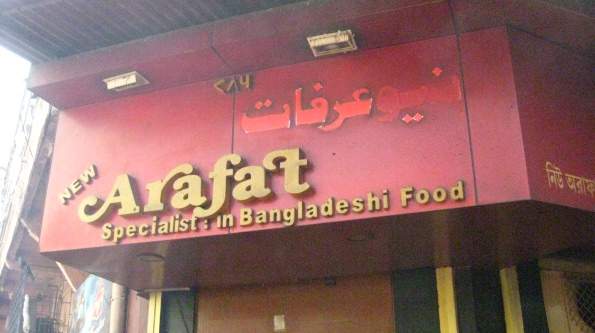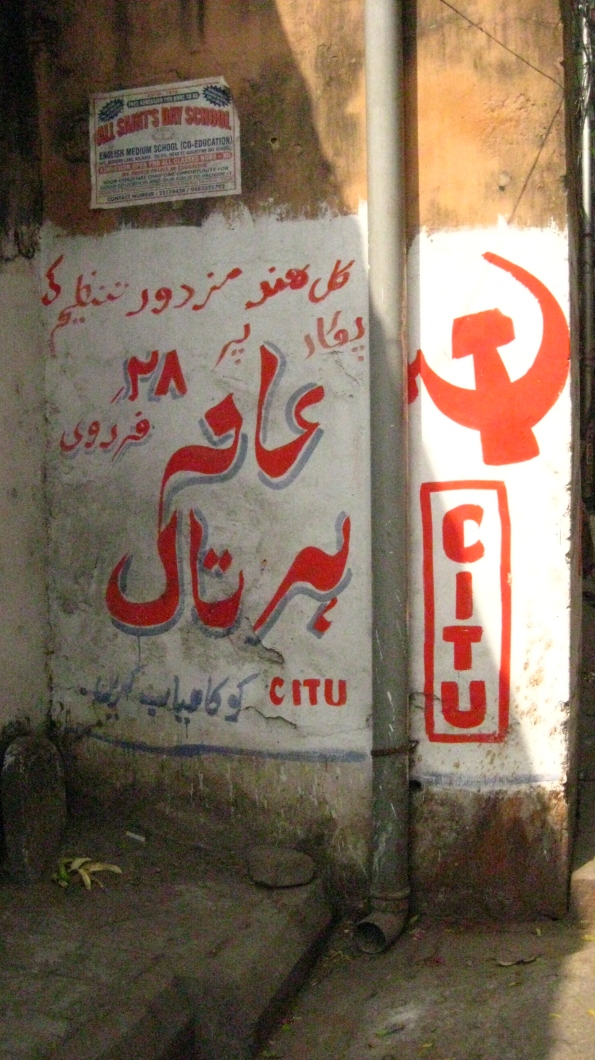Helloooo!
Hellooooo! We are students from the University of Hong Kong and currently taking a course offered by the School of English – LCOM 2005 Language, communication and globalisation: Politics, peril, pop. As students engaging in the field of sociolinguistic, this blog aims to share something about lanugage – the tool that we all use for communication everyday.
We would like to examine it in a more academic way, seeing it as a Bourdieuan capital in this globalised era. Yet no worry! We will give examples to help illustrate Pierre Bourdieu’s theories.
After all, language is something interesting to you and me.
Please follow us! ;]
Lee Shuk Ting Catti,
Man Fung Nga Vanessa,
Ng Hei Men Shelia,
Wong Yuen Shan Elaine
Who is Bourdieu? What is Bourdieuan Capital?
Who is Bourdieu?
If you are not studying Sociolinguistics or Sociology, the name of Pierre Bourdieu would be unfamiliar to you. Of course you are always welcome to search it on wikipedia. Yet, as he is the main theorist that we would talk about in this blog, you may want to first get in touch with this great scholar through this blog.
Pierre Bourdieu (1 August 1930 – 23 January 2002) was a French sociologist, anthropologist, and philosopher. Being one of the major thinkers in 20th century, he is influential as he raised a lot of unprecedented concepts, including a new definition for “capital”.
What is Bourdieuan Capital?
Captial is commonly associated with monetary exchange and economic sphere. However, Bourdieu extended this term to a wider anthropology of cultural exchange and valuations. He raised three more capital other than economic captial, they are cultural capital, social capital and symbol capital which will be explained later on. In the view of Bourdieu. he thought that economic capital is a fundamental one to other captial. The amount of money that we possess may alter our possessions of cultural and social capital.
In the following posts, we will talk more about concepts in order to let you understand the framework and follow our examples easily.
Cultural Captial VS Economic Captial VS Social Capital
What is cultural capital?
The Forms of Capital (1986) written by Bourdieu addressed the new concepts – cultural capital and social capital.In Bourdieu’s point of view, cultural capital is something that one acquires for equipping oneself and is reproduced by economic capital.
This definition sounds abstract. Yet, think about it, what things help to equip yourself as a better person in this society? Qualifications? Knowledges? Skills? Ability to speak different languages? All of them are cultural capital which can help you obtain a higher social status in society.
How is cultural capital related to economic capital for Bourdieu?
He thought that when one possess more economic capital, it is likely for their children to obtain more cultural capital. The two capitals are in direct proportion.
The notion of cultural capital initially presented itself to me, in the course of research, as a theoretical hypothesis which made it possible to explain the unequal scholastic achievement of children originating from the different social classes by relating academic success, i.e., the specific profits which children from the different classes and class fractions can obtain in the academic market, to the distribution of cultural capital between the classes and class fractions. (Bourdieu, 1986)
As your parents afford to pay the fee for your language classes, you are therefore able to speak those different foreign languages. By acquiring those languages, you are likely to get a more well-paid job in the future. Your parent’s economic capital “buys” your cultural capital which you can exchange to a higher social status in society. This is how Bourdieu’s capital works.
What is social capital?
As for the remaining one – social capital, Bourdieu refered it as “a durable network of more or less institutionalized relationships of mutual acquaintance and recognition”. In other words, whether or not you are a member of a group which also depends on the possessions of other capitals i.e. economic capital and cultural capital. He mentioned that social capital is not something naturally given but we have to acquired it. It is important to note that we do not simply acquire it for nothing, the network established has to be ‘usable’ for future.
In other words, the network of relationships is the product of investment strategies, individual or collective, consciously or unconsciously aimed at establishing or reproducing social relationships that are directly usable in the short or long-term, i.e., at transforming contingent relations, such as those of neighborhood, the workplace, or even kinship, into relationships that are at once necessary and elective, implying durable obligations subjectively felt (feelings of gratitude, respect, friendship, etc.) or institutionally guaranteed (rights). (Bourdieu, 1986)
If you are interested to know more, go and read his work The Forms of Capital.
Or if you want to learn social capital in a more interesting way, see this video.
Relations of the three capital
To conclude, there are actually different relations between forms of capital which will be illustrated in the following.
From the above image, economic capital can be transferred into cultural capital in relation 1. As I have mentioned above, your parents financially supported you to acquire more skills or knowledge which helps you to boost your cultural capital. In return, you are able to get a well-paid job that brings you power, status and a higher salary i.e. increase in economic capital. While in relation 2, by displaying cultural capital, it is more likely for us to gain acceptance and status in society, therefore acquiring social capital. As in relation 3, your social network can provide you more opportunities and therefore obtain economic capital which can be re-invested in cultural capital. This is to illustrate to you that it is a cycle which affect social relationship and interaction.
References
Bourdieu, P. (1986) “The Forms of Capital”
Grenfell, M. (2008) “Pierre Bourdieu: key concepts”
Grenfell, M. (2011) “Bourdieu, language and linguistics”
More about Cultural Capital – Linguistic Capital and Habitus
In the previous posts, we mentioned about the concepts coined by Pierre Bourdieu. He created a series of concepts and gave a new meaning to the term – capital which can be seen as resources that determines one’s social position in society.
What is linguistic capital?
Here we can explore more on cultural capital. According to the book Language and Symbolic Power (1991), cultural capital is “knowledge, skills and other cultural acquisitions, as exemplified by educational or technical qualifications.” Linguistic capital is one of the forms of cultural capital. It is inherited or acquired over time, not transferable and influences one’s habitus (which will be discussed later on). Affected by the surrounding environment, it is likely for one to recognize the power of a linguistic product/feature and become one of the producers of such product. One possesses power if his/her language is being seen as legitimate. For example, English is a mother tongue in many places around the world, United States, England, Australia, etc. Yet, people in different places do have different accents in speaking English. Since when they were young, they were surrounded by people who were mostly speaking with a particular accent. Hence, they may have consciously acquired and then passively “inherited” the accent when they are learning to speak. To know more about differences in accents, you may watch this.
How do we acquire our own habitus?
Of course, there are more than 21 accents in the world. Yet, you might have a question in mind: how do we acquire our own accent in speaking English?
That was why Bourdieu also coined “habitus” along with forms of capital. According to Pierre Bourdieu: Key concepts, habitus is an inclusion of attitudes and dispositions. Bourdieu further explained this concept in In Other Words: Essay Towards a Reflexive Sociology (1994), he thought that “habitus as a property of social agents (whether individuals, groups or institutions) that comprises a structured and structuring structure” Habitus is structured mostly by one’s past and present situation which includes family and the most important agency education. It is structuring that habitus affects the shaping of one’s present and future practice. At last, it is structure because we can see systematic order rather than random or unpatterned dispositions.
Thus, it is inevitable that we would see similar comments under the video that mentioned above.
Our family and education help us to structure our attitudes and dispositions of languages. In this case, the Californian who commented on the video has a strong opinion that Californian English is standard English while other accents are non-standard ones. The reason for he/she having this idea might be due to the influence of his/her family or school teaching which shaped his/her habitus. He/She built up the attitudes in mind through realizations in practice. The structured habitus led him/her to post this comment on Youtube in which the person explicitly states his/her ideas on the 21 accents. At last, this disposition is not arbitrary because it has a systematic structure which build in his/her mind. Bourdieu posted attention in the education which will also be discussed later.
As our family and education form our social background, for example which social class we belong to, they also affect the “logic of association” whereby each one makes his/her particular choices and selections. Therefore, people with similar social background would have similar “taste” and selections. The relationship between parents’ social background and the children’s academic and occupational success will be discussed later.
References
Bourdieu, P. (1990) “In Other Words: Essay Towards a Reflexive Sociology”
Bourdieu, P. (1991) “Language and Symbolic Power“
Grenfell, M. (2008) “Pierre Bourdieu: key concepts”
The Transmission of Cultural Capital
It is interesting to see how gaining linguistic capital (one form of cultural capital as mentioned in the previous post) can help a person to gain a higher social status in the society through the conversion process of linguistic capital into economical capital.
As mentioned by Bourdieu (1986), cultural capital exists in three forms: the embodied state, the objectified state and the institutionalized state. The institutionalized state of cultural capital is associated with “educational qualifications” (Bourdieu, 1986). The cultural capital provides a possible explanation to the “unequal scholastic achievement of children originating from the different social classes by relating academic success” (Bourdieu, 1986). A significant factor that contributes to academic success that Bourdieu (1986) has pointed out was the “domestic transmission of cultural capital” which is a process that Economists have always neglected. Economists have only taken “monetary investments” into account and are unaware that the investment in cultural capital also produces great ability and talent. To sum up, gaining and equipping oneself with cultural capital can lead to academic success and upward mobility in the social ladder.
An Introduction to the Medium of Instruction of schools in Hong Kong
“How does gaining cultural capital lead to academic success and earn you a higher social status in the society?”
One of the most important aspects of Hong Kong’s education system is the medium of instruction. Schools in Hong Kong that uses English Language as their medium of instruction are referred as English as Medium of Instruction Schools (EMI). This links to another type of schools called the “Grant School” in Hong Kong. Grant Schools are schools that receive subsidies from the Government and they are EMI schools. They have a greater flexibility and freedom in designing their curriculum, establishing their entrance requirement and setting the tuition fee. Examples of Grant schools in Hong Kong would be Diocesan Boys’ School, Diocesan Girls’ School, St. Paul’s Co-educational College and Ying Wa College. Due to their renowned history and strong alumni network, the Grant schools are perceived as the “elite” schools in Hong Kong by the public and the Grant school themselves. The elite school culture has been an influence to the parents’ perception of the quality of education provided by different schools in Hong Kong – schools that are classified into EMI or ‘elite’ schools will be of ‘better quality’ than those which use Chinese Language as their medium of instruction (the ‘non-elite’ schools). Parents in Hong Kong will pay a lot of effort in getting their children enrolled into these so called “elite” schools. This “elite” school culture created a norm in Hong Kong – many parents will make careful plans to ensure that their children will enter these elite schools when they grow up. They groom their children into confident and well-bred boys and girls who excel in their subjects, so that they will stand out from other children who are of the same age as them. This is to ensure success in enrolling into good, ‘elite’ and EMI schools in Hong Kong.
This ‘elite’ school culture in Hong Kong has reflected the power of the passing of cultural and economic capital from parents to children. Parents utilize their “economic, cultural and social resources to ensure the children’s academic and occupational success” (Devnie, 2008).
Does Education entail one’s success in the future?
Class inequalities and reproduction
Parents pass down their economic, cultural and social resources to their children so that their children benefit from the advantages and perform successfully at school and in the labor market in the future. Some children will turn out to be more successful and advantageous in terms of the quality of the education they receive and their occupations over the other children. Children from middle-class and upper-class families will benefit more from their parents’ transmission of resources to them since their parents possess more resources in the first hand – they have a larger and better social network than the parents from lower-class. Middle-class and upper-class children have an advantage and domination over children from lower-class families in terms of educational and occupational aspects. As Bourdieu’s theory has mentioned, “Cultural capital is created out of struggles between social classes that attempt to legitimate their own culture” (Devine, 2008). Parents from the upper and middle-class exploit their capitals to legitimate and assert their cultures in the society. Therefore, we can see that class inequalities are reproduced from the process of parents transmitting their resources to their children.
References:
Bourdieu, P. (1986) “The Forms of Capital”
Devine, F. (2008). “Class reproduction and social networks in the USA” in Lois Weis (ed.) The Way Class Works. New York: Routledge.
CMI? EMI? The Educational Policy in Hong Kong
“Are you from EMI school? Oh Gosh, no wonder you can speak English such fluently!” Have you being praised or heard about similar sentences before? Those who come from EMI (English as Medium Instruction) are expected to have higher English proficiency, better academic result and promising future; while those who come from CMI (Chinese as Medium Instruction) are always criticized as the subordinate one.

Why does it matter?
It is not surprising to observe the phenomenon above as the educational policy in Hong Kong inserts such an ideology: The intelligence holds better English proficiency. In the previous posts, we have mentioned that symbolic capital can be closely associated with cultural capital. However, language policy usually has a social, political and economic orientation (Poon, 2000). According to Bourdieu (1992), every capital can be derived from economic capital. The language policy of educational system in Hong Kong is an good example to illustrate how the economic and political factor (economic capital) affects the language perception.

Schooling in Hong Kong before 1997
Schooling is never politically or socially neutral (Hu, 2007). Due to the British colonial background, Hong Kong students were forced to learn English in primary and secondary school. ‘English’ was not solely a choice of language, but a language which was associated with economic and symbolic capital. Before 1974, only English was the official language. Although Cantonese and English are both well-recognized, English is still universally seen as the prestige language. The dominant group (the rich in upper-status) defines the linguistic habitus to prevent other languages from gaining legitimacy, in order to preserve their own interests and social status in the society. Nowadays, students have to get at least C grade in Use of English in Advanced Level of Examination in order to get into The University of Hong Kong.
The Changes after 1997

English has marked a significant influence in Hong Kong educational system, and it represents a status of power. However the situation is changing since the handover in 1997. The HKSAR pay more attention to biliterate and trilingual (liangwen sanyu) policy, that promotes both Chinese (including Cantonese and Putonghua) and English. Language is a kind of symbolic capital that the instrumental power linked the knowledge and communication skills with the social and economic relations. Putonghua is compulsory for primary and secondary school education; some of the Chinese lessons are conducted in Mandarin in Direct Subsidy School. In 2010, there is no more categorization between EMI and CMI school, the schools themselves own the authority to decide the medium of instruction.
Thanks to the market-economics-driven China, Putonghua has acquired instrumental and integrative value in the society. Not only for the private enterprises, but also the HKSAR. English, Cantonese and Putonghua are required for the civil servants, especially for the Administrative Officer (AO) and Executive Officer (EO). Do not try to be senior officer in Hong Kong if you are not fluent in Putunghua, or you will suffer and being teased as below.
( The Chief Executive of Macau, Chui Sai On, was being teased at his extremely poor Putunghua proficiency in the Inauguration Ceremony in 2009)
The language policy and educational system shifts according to the shifts in economic and political aspect. You may look up the reference if you want to have deeper understanding.
Reference:
Bourdieu, P. (1991). Language and symbolic power. Cambridge: Polity Press.
Hu, L.Y. (2007). Language policy, practice and diglossia in colonial and post-colonial Hong Kong.
Poon, A.Y.K. (2000). Medium of instruction in Hong Kong: Policy and practice. Lanham, MD:University Press of America.
How Do People Perceive Speakers of Different Language Varieties?
In the previous posts, we have talked about how linguistic capital helps a person to gain access to different resources, power and a higher social status in a society, touched on the issue of accents and Bordieu’s “habitus” concept. Now, we will look at how different language varieties (including accent, languages, dialects, registers and styles) spoken by different speakers provokes different reactions and responses from people. In other words, we look at how people perceive speakers of different language varieties.
As seen from the video “21 accents” in the previous post, we can see that different people have different responses and perceptions towards different accents. One of the users with username “MahajiHaji” from youtube commented on the “21 accents” video – “Californians have accents? I just feel silly.” Here, we can see that the user is being a bit ironic and implicit when he wants convey his message that Californians speak standard and good English without accents. He thinks that Californians are superior to other accents; thus, he feels “silly” when he hears Amy Walker, the girl who pronounced all the 21 accents in the video, speaking in California accent.
This negative comment might be a result of discrepancy in the language attitudes between Walker and the user “MahajiHaji” or the inaccurate presentation of the Californian pronunciation by Walker (i.e. simply because Walker did not have the full skill to pronounce it right). From this case, we can see that different people have different perceptions towards an accent and that they develop different language attitudes towards different groups of people. One of the explanations would be they are in different habitus that constructing them having different attitudes and dispositions towards Californian accent.
Matched-guised Test
A “matched-guise” test was designed to test people’s perceptions towards different language varieties. This test was developed by Wallace lambert in 1960.
The voices of speakers speaking different language varieties are recorded onto the tape and interviewees are asked to evaluate the personal qualities or their impressions of each of the speakers whose voice were recorded and played. By performing this test, we can how people perceive different language varieties in a different way and whether there is a pattern in their perception – i.e. if stereotypes or social prejudices exist in the society.
The results showed that “standard speakers were most often judged highest on the competence dimension while nonstandard were rated higher for the integrity and attractiveness dimensions” (Preston, 2002).
“Attitudes towards languages and their varieties seem to be tied to attitudes towards groups of people.”
“Germans are harsh; just listen to their harsh, guttural consonants. US Southerners are laid-back and lazy, just listen to their lazy, drawled vowels.”
— Preston, 2002
The “friendly” VS “standard” Symbolic Linguistic Capital
According to Preston (2002), Southeastern Michiganders are asked to rate the individual attributes (casual, friendly, down-to-earth etc.) of the Southerners and Northerners. From table 2.5, we can see that the “Casual” attribute that are highest-rated for the South is lowest-rated for the North. The rank orders are almost opposite for the South and the North.
By looking at the rankings of the attributes of the South and the North, the concept of “Symbolic linguistic capital” is raised.
“Symbolic Capital” is a term coined by Pierre Bordieu. It is a “form of power that is not perceived as power but as legitimate demands for recognition, deference, obedience, or the services of others” (Swartz, 1997).
“Speakers of majority varieties have a tendency to spend the symbolic capital of their variety on a ‘Standard’ dimension. Speakers of minority varieties usually spend their symbolic capital on the ‘Friendly’ dimension” (Preston, 2002). In other words, Northerners (in this case, southeastern Michiganders) spend their symbolic linguistic capital on the “standardness of local English” whereas Southerners spend it on the “friendliness” of English, suggesting that the Northerners speak more standard English than the Southerners and that the Northerners’ English is superior to the Southerners’. This symbolic linguistic capital gaining a sense of recongnition of the users explains why some minor communities in the world still use the non-prestige languages.
Cognitive Maps
US Language Attitudes
The video shows Dennis Preston performing a dialect research on people’s perception towards the language varieties of different states in the U.S. He approaches the passengers of different ethnicities (black and white) on the train and ask them to draw circles on the map to indicate the areas that they think that speaks the most and least correct English.
Preston (2002) performed cognitive-map tests with the interviewees from Southeastern Michigan and Alabama respectively. The interviewees were asked to rate the 50 states in the U.S. for their language ‘correctness’ in one map and language ‘pleasantness’ in another. The darker the color of the states, the higher the degree of ‘correctness’ or ‘pleasantness’.
Conclusion: The ratings show that both the Michiganders and Alabamians think that speakers of the Northern states of USA speak more “correct” English than those from the Northern states of USA.
For speaking “pleasant” English, both the Michiganders and Alabamians think that the Southern states speak more ‘pleasant’ English than the Northern states.
Languages in different context can also be seen as capital. The “correct” English spoken by the Northerners is a form of cultural capital that can enable you to gain social power and prestige. While the “pleasant” English spoken by Southerners is a symbol linguistic capital that identifies the speakers as a member of the South.
Reference:
Swartz, D. ulture & power: the sociology of Pierre Bourdieu. University of Chicago Press, 1997.
Language Conflict between Hong Kong and Mainland China
What makes you think you are “Hong Kong Yan” (Hong Kong People)? The recognition is not given by the identity card, but the language itself. Under special colonial background, Cantonese and Traditional Chinese Character are officially widely used in Hong Kong, comparing with the Mandarin and Simplified Chinese in the Mainland China. There have been conflicts between this difference and they can be associated with the symbolic capital and cultural capital raised by Bourdieu.
What’s happened ?
Hong Kong People have been formed their special culture which is collectively accepted, we called it ‘habitus’ (refer to the previous posts for detailed definition). Our social space is constructed under political forces, objective circumstances (such as the historical fact) and subjective perceptions. Although people are capable of perceiving the relations between objective and subjective practices (Bourdieu, 1992), conflicts will be raised if we cannot express our perceptions by using language freely.
Real Life Conflict Videos
VIDEO A.
VIDEO B
Brief Content of two videos (Produced by Apple Daily, a well-recognized newspaper in Hong Kong)
-Video A reported some of the warning road-signs are written in Simplified Chinese (posted by Police Authority officially) ;
-Video B showed the protest in Hong Kong, which aim to preserve the Cantonese and against the Beijing government prohibited the Guangdong TV Programme from using Cantonese.
Denegation of Cultural and Symbolic Capital
All forms of the capital represent the power we have. Since symbolic capital cannot exist independently, it closely associated with the cultural capital in general. Both of them take time to develop capital accumulation, which is a long process for cultural cultivation, integrating the personal perspective into collective habitus with hereditary transmission (Bourdieu, 1982).
From the video, we can clearly observe that Hong Kong People treat Traditional Chinese Characters and Cantonese as their identity representation, which carries symbolic meaning. In Video B, they yelled out “掉那媽,頂硬上” (Fuck his Mum, Hit the Hard), which was a Cantonese foul-language-slogan used by Yuan Chonghuan (a military commander of the Ming Dynasty). It shows the anger of the Hong Kong People that they strongly oppose any denegation towards their own culture and social value. The demolishment of Cantonese by the Beijing government is treated as a way of ‘symbolic violence’. As Karl Marx mentioned, bringing distinctive power to force other culture distanced from the dominance is harm. This action assaults the solidarity of Hong Kong as the symbolic capital (traditional Chinese and Cantonese) is associated with long-processed structural functionalism and social integration. This capital is consisted of instrumental value as well that reproduce the social order in Hong Kong. It is not surprising for Hong Kong People to conduct series of “Against Locust Campaign” as the pictures shown below.
New Direction?
Apparently Symbolic Violence or ‘Orthodoxy’ is not applicable in Hong Kong. The Symbolic Violence will only further consolidate the current ideology, which makes the general public against the political power from Mainland China. Unity consists the diversity. We have to leave a social space to Hong Kong, preserve their symbolic capital, and wait the cultures merge themselves. “We are capable of perceiving the relation between practices or presentations and position in social space”, the Chinese need TIME and PATIENCE to fix the relations!
Kolkatta,India – Arabic as Symbolic Capital
Namaska!( greetings used in Bengali)
Let’s now walk out of the ivory tower!
We gonna bring you around Kolkatta কলকাতা ,India and see how language works as captial in reality!
During my one-week trip, I observe the four most commonly-seen languages in Kolkata are
Bengali, Hindi, Arabic and English!
(assalamu alaykum!) ! السلام عليكم
*it’s a greeting used in the Islamic World.*
What a surprise that I can use Arabic even in Kolkatta! (perhaps it’s a ‘ cultural’ shock?:D)
As the second largest religion(13.4%) in India, it is not difficult at all to bump into Arabic, muslims, Islam and mosques.
You can find the greeting “assalamu alaykum!” in the mosque, in the restaurant, on the walls!
One day when I was wandering in the bazzar, I even find a local reading newspaper in Arabic!
I wonder how wide-spread Arabic is in Kolkata!
(* This is an Arabic text,possibly from Quran,hung outside a local mosque)
Arabic: Symbolic Capital
Simply said, symbolic capital, a word coined by Bourdieu, refers to the resources functions as an authoritative embodiment of cultural value. Islam, as the second-most practised religion, has its own social authoriy in India. Back in the 12th century, the Muslims arrived in Northern India and ever since have become a great foundation of India’s cultural,social and religion heritage.Quran, written in Arabic is the holy book of Islam. Therefore,very often, Arabic itself carries a religious connotation.This answers my questions as to why there is Arabic almost everywhere in Kolkata. In that sense, the wide usage of Arabic and the spread of Islam seem to mutually reinforce each other’s status in Kolkata.
Kolkata,India – English as Symbolic Capital
English: Here, there, everywhere!
In Kolkata, I speak even more English than when in Hong Kong!
Indians generally speak good English. To have a sample of Indian English, watch it or simply go to Chungking Mansion in Tsim Sha Tsui, Hong Kong.
Bear in mind that you have to pay EXTRA attention when listening to Indian English!
It is difficult at first to catch their accents!
Christianity, the third-most practised religion in India. Thanks to Mother Teresa, Christianity is gaining ever-increasing significance in Kolkata! Who don’t know Mother Teresa in Kolkata? Can we see the spread of English as a by-product of the spread of Christianity,similar to Arabic and Islam? Think about it. Does English have such a strong religious connotation like Arabic does?
Seems not!
Historical legacy
So what explains the wide spread of English?
As we all know, India was once a British colony like Hong Kong.
English, the associate official lanugage along with Hindi, is the legacy of the British colonial period.Given this historicial background, English had enjoyed the privilege to permeate the political, economical, education and social spheres of Kolkata. Apart from military and political resort, one of the resorts used by the colonial powers is to use languages to ‘colonize’ an area.
In this way, English is used as a symbolic capital by the British government to extend their ideological and political power into colonies.Put it simple. English in India is a symbol of the British colonialism. Analogically speaking, the British government, acting as an entrepreneur, injects the language capital into Kolkata and in the end, their gains are the official, supreme and legitimate status of British governance.
To know more about Indian English, I recommend this article from CHILLIBREEZE.
Reflection
Colonial powers no longer reign.However, when language is used as a symbolic capital and as a resort of political intervention, it prompts us into the question that if this is a disguised form of ‘neo-colonialism’?
Furthermore, will this deliberate act on implanting a ‘foreign language’ makes foster the extinction of some minority, ethnic languages?
The United Nations Educational, Scientific and Cultural Organisation (UNESCO) had published “Atlas of Languages in Danger of Disappearing”.
Here are some facts and figures:
1. There are an estimated 6,000 languages spoken worldwide today.
2. 50% of the world’s population speaks the 8 most common languages.
3.More than 3,000 languages are reportedly spoken by fewer than 10,000 people each.
4. 417 languages are on the verge of extinction.
One may not realise the problem of language extinction. What’s the big deal if a majority language kill a minority language? The problem is that the extinction could be a great loss to anthropological and historicial study.

Do you recognize the language in the middle row:D?
















